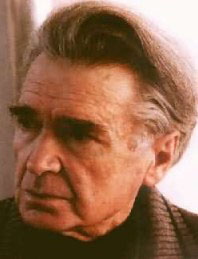 Monsieur Ouine , one of the greatest French novels of the 20th century, provides many answers to the modern world as it goes. The few quotes that follow give a glimpse of the Evil insinuated everywhere.
Monsieur Ouine , one of the greatest French novels of the 20th century, provides many answers to the modern world as it goes. The few quotes that follow give a glimpse of the Evil insinuated everywhere.
Month: April 2010
The virtues of boredom
 In an acidic little book ( De la France , translated by Alain Paruit. L'Herne), Emil Cioran, gave an answer to the French malaise. He explained how attached he was to boredom, but he distinguished two kinds of boredom: that which opens "its doors to infinity", "as an extension in the spiritual of an immanent emptiness of being" and that which he thinks as one of the most important evils of France, its boredom “devoid of infinity”. He calls it "the boredom of clarity." […] the fatigue of things understood”.
In an acidic little book ( De la France , translated by Alain Paruit. L'Herne), Emil Cioran, gave an answer to the French malaise. He explained how attached he was to boredom, but he distinguished two kinds of boredom: that which opens "its doors to infinity", "as an extension in the spiritual of an immanent emptiness of being" and that which he thinks as one of the most important evils of France, its boredom “devoid of infinity”. He calls it "the boredom of clarity." […] the fatigue of things understood”.
Notes on The Child of Voluptuousness
She laughs at his sentence. He had a madrigal on his lips about his suspended heart; but he did not utter it, for he disliked prolonging the dialogue in this false and light tone and thus spoiling his intimate enjoyment. He was silent.
Notes on History of Catholicism
 Notes from Histoire du catholicisme by Jean-Pierre Moisset (chapter 9: The shock of modernity (mid-18th century — 1870).
Notes from Histoire du catholicisme by Jean-Pierre Moisset (chapter 9: The shock of modernity (mid-18th century — 1870).